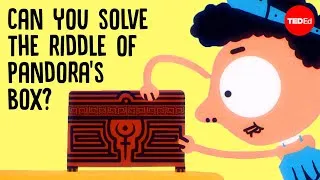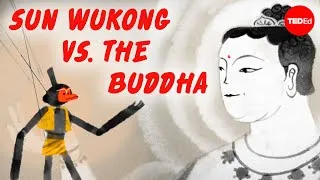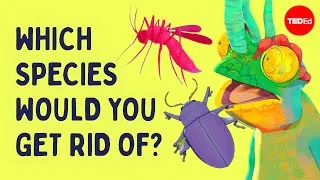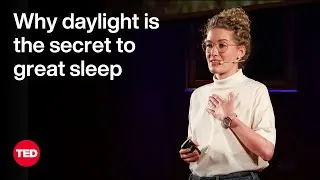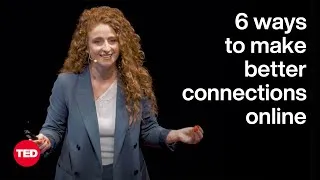The difference between classical and operant conditioning - Peggy Andover
3,422,642 views ・ 2013-03-07
請雙擊下方英文字幕播放視頻。
00:00
Translator: Andrea McDonough
Reviewer: Bedirhan Cinar
0
0
7000
譯者: Lilian Chiu
審譯者: Amanda Zhu
00:14
When we think about learning,
1
14216
1488
說到學習,我們通常會想到
學生坐在教室或講堂裡,
00:15
we often picture students in a classroom or lecture hall,
2
15704
2661
00:18
books open on their desks,
3
18365
1308
桌上是打開的書本,認真
聽著前面的老師或教授講課。
00:19
listening intently to a teacher or professor
4
19673
2268
00:21
in the front of the room.
5
21941
1658
00:23
But in psychology, learning means something else.
6
23599
2912
但在心理學中,學習有不同的意義。
00:26
To psychologists, learning is a long-term change in behavior
7
26511
3641
對心理學家而言,學習是根據經驗
00:30
that's based on experience.
8
30152
2131
所造成行為上的長期改變。
00:32
Two of the main types of learning are called
9
32283
2096
兩種主要的學習類型是古典制約
00:34
classical conditioning
10
34379
1642
以及操作制約,或稱工具性制約。
00:36
and operant, or instrumental, conditioning.
11
36021
3045
00:39
Let's talk about classical conditioning first.
12
39066
2903
咱們先來談古典制約。
00:41
In the 1890's, a Russian physiologist named Ivan Pavlov
13
41969
3536
1890 年代,
俄國生理學家伊凡巴夫洛夫
對狗進行了一項知名的實驗。
00:45
did some really famous experiments on dogs.
14
45505
2899
00:48
He showed dogs some food
15
48404
1332
他把食物給狗的同時也會搖鈴。
00:49
and rang a bell at the same time.
16
49736
2044
00:51
After a while, the dogs would associate the bell with the food.
17
51780
3510
一段時間後,狗就會
把鈴聲和食物連結起來,
00:55
They would learn that when they heard the bell,
18
55290
1652
進而學到:聽到鈴聲時就有東西吃。
00:56
they would get fed.
19
56942
1478
00:58
Eventually, just ringing the bell
20
58420
2034
最後,單是搖鈴就會讓狗流口水。
01:00
made the dogs salivate.
21
60454
1461
01:01
They learned to expect food at the sound of a bell.
22
61915
3546
牠們聽到鈴聲時就預期會有食物。
01:05
You see, under normal conditions,
23
65461
2103
在正常狀況下,
01:07
the sight and smell of food causes a dog to salivate.
24
67564
3451
看見和聞到食物會讓狗流口水。
01:11
We call the food an unconditioned stimulus,
25
71015
2550
我們把食物稱為非制約刺激,
01:13
and we call salivation the unconditioned response.
26
73565
3999
把流口水稱為非制約反應。
01:17
Nobody trains a dog to salivate over some steak.
27
77564
3468
狗不用訓練就會對著牛排流口水。
01:21
However, when we pair an unconditioned stimulus like food
28
81032
3281
然而,當我們把非制約刺激
——即實驗中的食物——
01:24
with something that was previously neutral,
29
84313
2321
和原本中性的東西
——即實驗中的鈴聲——
01:26
like the sound of a bell,
30
86634
1568
配對起來,
01:28
that neutral stimulus becomes a conditioned stimulus.
31
88202
3256
該中性刺激就會變成制約刺激。
01:31
And so classical conditioning was discovered.
32
91458
3628
於是,他發現了古典制約。
01:35
We see how this works with animals,
33
95086
2377
我們能了解動物的古典制約,
01:37
but how does it work with humans?
34
97463
2125
但在人類身上會是什麼樣子?
01:39
In exactly the same way.
35
99588
1817
完全一樣。
01:41
Let's say that one day you go to the doctor to get a shot.
36
101405
3406
比如,有天你去找醫生幫你打針,
01:44
She says, "Don't worry, this won't hurt a bit,"
37
104811
2955
她說:「別擔心,一點也不會痛。」
01:47
and then gives you the most painful shot you've ever had.
38
107766
4169
接著幫你打了你這輩子最痛的一針。
01:51
A few weeks later you go to the dentist for a check-up.
39
111935
2921
幾週後,你去牙科檢查牙齒。
01:54
He starts to put a mirror in your mouth
40
114856
1552
他把鏡子伸進你的嘴裡
以查看你的牙齒,
01:56
to examine your teeth,
41
116408
1451
01:57
and he says, "Don't worry, this won't hurt a bit."
42
117859
3465
他說:「別擔心,一點也不會痛。」
02:01
Even though you know the mirror won't hurt,
43
121324
2423
即使你知道鏡子不會讓你痛,
02:03
you jump out of the chair and run,
44
123747
1448
你還是從椅子上跳起來,
尖叫著衝出診間。
02:05
screaming from the room.
45
125195
1729
02:06
When you went to get a shot,
46
126924
1680
你先前去打針時,
02:08
the words, "This won't hurt a bit,"
47
128604
2248
「一點也不會痛」這句話
02:10
became a conditioned stimulus
48
130852
1615
和打針痛感的非制約刺激配對結合,
02:12
when they were paired with pain of the shot,
49
132467
2161
02:14
the unconditioned stimulus,
50
134628
2009
變成了制約刺激。
02:16
which was followed by your conditioned response
51
136637
2161
接續的是你的制約反應
「快離開那裡」。
02:18
of getting the heck out of there.
52
138798
2472
02:21
Classical conditioning in action.
53
141270
2738
這就是古典制約在運作。
操作制約能說明行為的後果
如何導致自願性的行為改變。
02:24
Operant conditioning explains how consequences
54
144008
2259
02:26
lead to changes in voluntary behavior.
55
146267
2875
02:29
So how does operant conditioning work?
56
149142
2336
那操作制約又是怎麼回事?
02:31
There are two main components in operant conditioning:
57
151478
3252
操作制約有兩個主要元素:
02:34
reinforcement and punishment.
58
154730
2259
增強和懲罰。
02:36
Reinforcers make it more likely
59
156989
1788
增強物會讓你再做
同一件事的可能性增加,
02:38
that you'll do something again,
60
158777
1748
02:40
while punishers make it less likely.
61
160525
2183
懲罰物則相反。
02:42
Reinforcement and punishment can be positive or negative,
62
162708
3161
增強和懲罰都有正面和負面兩種,
02:45
but this doesn't mean good and bad.
63
165869
2265
但不等同於好與壞。
02:48
Positive means the addition of a stimulus,
64
168134
2356
正面表示增加刺激,
02:50
like getting dessert after you finish your veggies,
65
170490
2461
比如吃完蔬菜就可以得到甜點,
02:52
and negative means the removal of a stimulus,
66
172951
2313
負面表示拿掉刺激,
02:55
like getting a night of no homework
67
175264
1701
比如考試成績良好就有一天
不用寫回家功課。
02:56
because you did well on an exam.
68
176965
2504
02:59
Let's look at an example of operant conditioning.
69
179469
2707
咱們來看看操作制約的例子。
03:02
After eating dinner with your family,
70
182176
1819
和家人共進晚餐之後,
03:03
you clear the table and wash the dishes.
71
183995
2527
你整理了餐桌也洗了碗盤。
03:06
When you're done, your mom gives you a big hug
72
186522
2202
做完之後,母親給你一個大擁抱,
說:「謝謝你幫我。」
03:08
and says, "Thank you for helping me."
73
188724
2384
03:11
In this situation, your mom's response
74
191108
2159
在這個情況中,
母親的反應就是正面的增強,
03:13
is positive reinforcement if it makes you more likely
75
193267
2629
因為她的反應讓你更有可能
重覆你的操作反應,
03:15
to repeat the operant response,
76
195896
1793
03:17
which is to clear the table and wash the dishes.
77
197689
2922
即整理餐桌和洗碗盤。
03:20
Operant conditioning is everywhere in our daily lives.
78
200611
3427
在我們的日常生活中,
操作制約處處可見。
03:24
There aren't many things we do
79
204038
1495
我們做的事大多都受過
操作制約的影響。
03:25
that haven't been influenced at some point
80
205533
1940
03:27
by operant conditioning.
81
207473
1835
03:29
We even see operant conditioning
82
209308
1772
我們甚至會在一些不尋常的
情況中看到操作制約。
03:31
in some extraordinary situations.
83
211080
3041
03:34
One group of scientists showed the power
84
214121
2340
有一群科學家藉由
訓練鴿子成為藝術鑑賞家,
03:36
of operant conditioning
85
216461
1040
03:37
by teaching pigeons to be art connoisseurs.
86
217501
2889
來展示操作制約有多強大。
03:40
Using food as a positive reinforcer,
87
220390
2335
科學家用食物當正面增強物,
03:42
scientists have taught pigeons
88
222725
1417
教鴿子挑出莫內的畫,
03:44
to select paintings by Monet
89
224142
2250
03:46
over those by Picasso.
90
226392
1996
忽略畢卡索的畫。
03:48
When showed works of other artists,
91
228388
2256
拿出其他藝術家的畫時,
03:50
scientists observed stimulus generalization
92
230644
2792
科學家觀察到刺激類化的現象,
03:53
as the pigeons chose the Impressionists
93
233436
1793
鴿子會挑出印象派的畫,
而不是立體派。
03:55
over the Cubists.
94
235229
1525
03:56
Maybe next they'll condition the pigeons
95
236754
1855
也許接下來他們會制約鴿子,
讓牠們畫出自己的名作。
03:58
to paint their own masterpieces.
96
238609
1926
(鈴聲)
New videos
Original video on YouTube.com
關於本網站
本網站將向您介紹對學習英語有用的 YouTube 視頻。 您將看到來自世界各地的一流教師教授的英語課程。 雙擊每個視頻頁面上顯示的英文字幕,從那裡播放視頻。 字幕與視頻播放同步滾動。 如果您有任何意見或要求,請使用此聯繫表與我們聯繫。


